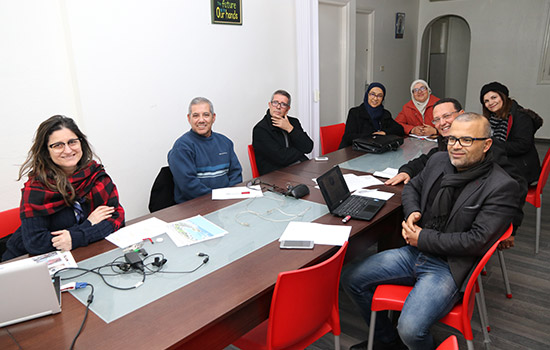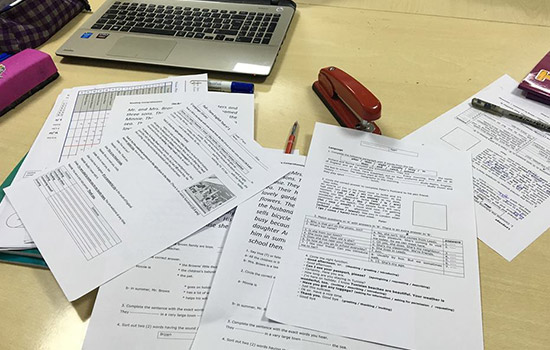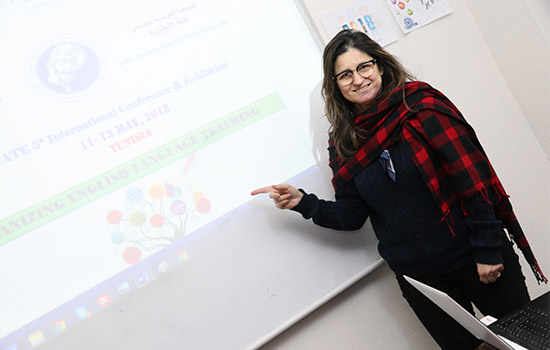Welcome to Space Of Wisdom
Home > English
ENGLISH FOR SCIENTIFIC RESEARCH
PRE-REQUIRED :
Placement test for non-beginners / Needs analysis
DESCRIPTION
The space of wisdom provides tailor-made courses for researchers to read and write scientific articles in technical English.
The course includes the essential basics for:
- The writing of scientific articles.
- Writing reports.
- Presentation of the articles in conferences at the national and international levels (English for communication).
- Bring the learner to improve oral expression in English in scientific communication situations.


- 3 possible formulas according to the levels and the needs of the listeners (Levels: Beginner, Intermediate, Advanced)
-
Type of communication: Written and / or Oral
- Type of presentation: articles, posters, conferences, congresses, etc.
- Position of the auditor: Head of laboratory, head of research unit teacher researcher, student researcher.
- Specialization of the auditor: Biology, geology, chemistry, medicine, etc.
- These trainings allow researchers and student-researchers to acquire many linguistic, rhetorical and cultural skills necessary to manage in English any form of written scientific communication (writing an article, writing a professional letter, etc.) and oral communication (presenting a paper oral presentation, poster presentation, participation in a round table, etc.).
SPECIFIC OBJECTIVES
Understanding and oral production:
- To present their work, Know how to identify things.
- To defend their ideas more effectively, Make checks.
- To better discuss their areas of interest.
- To understand varied speeches, take notes in English.
- To summarize and rephrase verbally and / or in writing, to question while recognizing the need for the appropriate vocabulary of each discipline.


- Reports of research / press articles, debates / discussions around polemic topics, round table type with mediator of turn taking, poster sessions (or others) of their own field of research.
- To present oneself to an audience, introduce one’s laboratory and one’s team
- To manage interpersonal relationships in the formal situation of the presentation as well as in informal situations.
- To communicate with a colleague in English.
- To face the question-and-answer session following a presentation (at a conference) according to the time available
- To be able to attend a seminar, an English course
- To be able to take part in a conference, congress, etc.
CONTENT OF THE PROGRAM
- The linguistic and cultural specificities of scientific communication in English.
- An active method of oral presentation to learn how to present work and/or to lead a discussion or a round table.
- The good use in English of mathematical formulas; the presentation of figures, diagrams and graphs
- Review of the basic grammatical structures and work on the specificities of scientific English (The different grammatical tenses, The passive voice, The accounting and non-accounting names, The connectors, The sequencers, The punctuation The pronunciation, Scientific vocabulary).
- Translation of articles (medical, scientific).
- Correction and refinement of research style for Researchers (Proof Reading).


COURSE FORMAT
-
Modular training by level (a module of 40h / level spread over ten weeks at a rate of 4 hours per week).
- A wide range of time slots is proposed
-
Group courses in companies: Group courses (8 to 10 people) are adapted to the needs of the company.
- Only the most common levels from A2 to B2 are offered on a permanent basis.
- The opening of a course starts from a minimum number of registrations (8 learners / group).
- Educational Materials: Your textbook and other classroom materials are not included in the registration fees.
- Certification: At the end of the course, a certificate is provided for each student. It lists the type of English course the student has taken, the level, the course dates, and the number of hours of study. You will also receive a newsletter describing your progress, a very useful document for your future employers
- To reserve your place on a course, a non refundable deposit of 20 DT is required.


LEVELS
- Level 1 (A0): Beginner.
- Level 2 (A1): Elementary.
- Level 3 (A2): Pre-intermediate.
- Level 4 (B1): Intermediate.
- Level 5 (B2): Upper Intermediate.
- Level 6 (C1): Advanced.
- Level 7 (C2): Competent.
RUNNING
- A first module of 20 hours, an average of 4 hours per week, followed by a second higher module of 20 hours.
- After 40 hours, the learner must be able to communicate correctly both orally and in writing.